Cockleshell Heroes: Marines complete 80th anniversary recreation
- Published
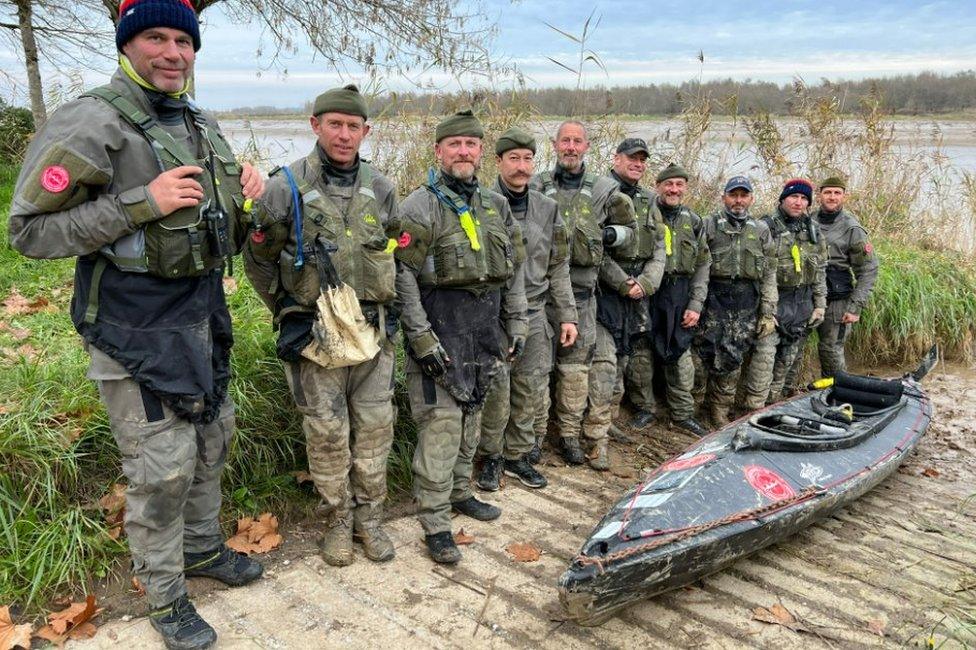
The Cockleshell 22 team retraced the route of the Cockleshell Heroes to raise money for three military charities
A group of former Royal Marines has completed a recreation of one of the most daring raids of World War Two.
Then ten veterans ended a 100-mile yomp in Ruffec, France, earlier, having successfully kayaked up the Gironde river to Bordeaux last week.
The team were following the route of the Operation Frankton mission to attack Nazi ships in 1942.
While only two survived, the original mission was a success and the marines became known as the Cockleshell Heroes.
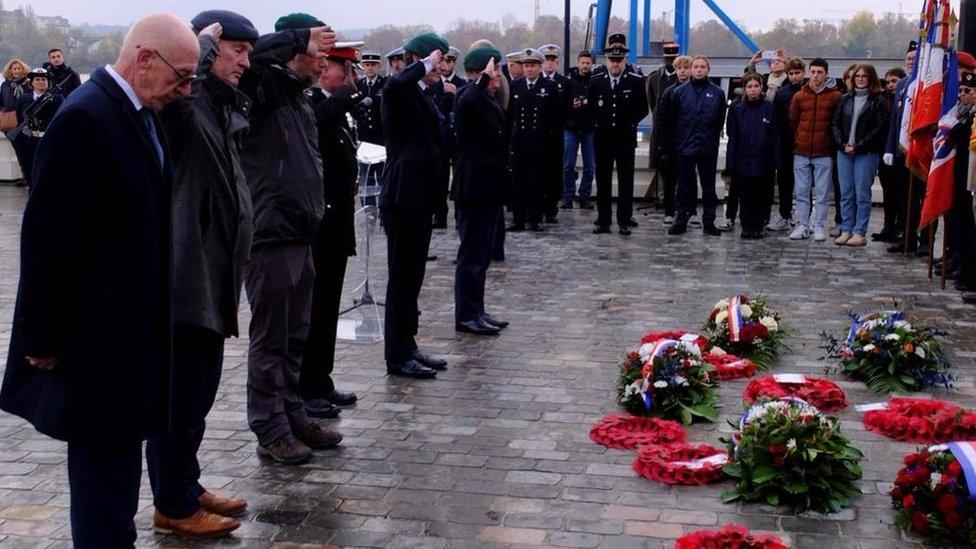
The team took part in commemoration ceremonies while in Bordeaux
After training off Portsmouth, the Operation Frankton plan was to canoe almost 100 miles behind enemy lines to blow up a fleet of German ships moored at the port of Bordeaux in occupied France. Five were mined and badly damaged.
Its significance reportedly led Winston Churchill to say he believed the raid could have shortened the war by six months.
The marines' mission was so daring and dramatic it was immortalised in the 1955 film The Cockleshell Heroes.
The Cockleshell 22 project saw 10 former marines retrace their route to mark the 80th anniversary of the raid.
They paddled more than 70 miles in folding kayaks along the treacherous Gironde estuary as far as Bordeaux where they took part in joint French-British commemoration events.
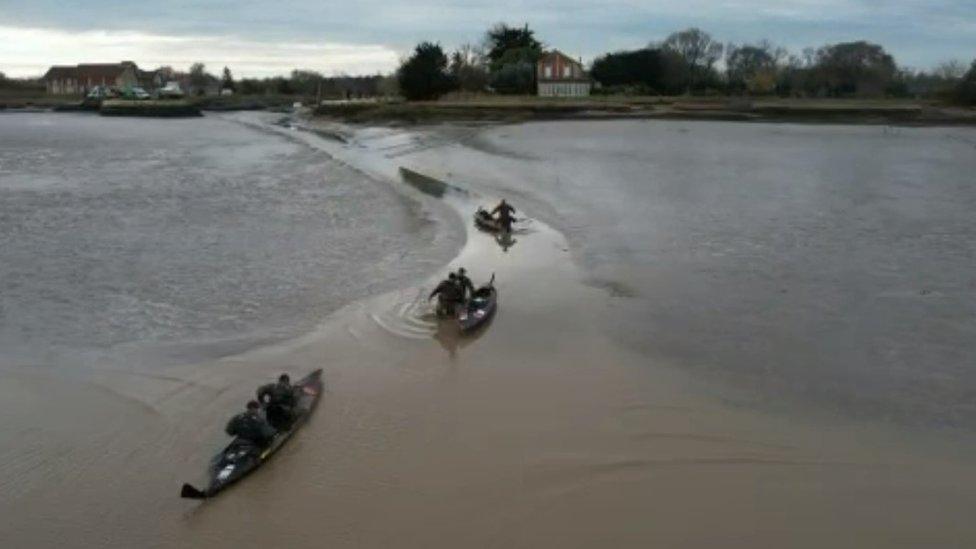
The ten-man team kayaked up the Gironde estuary towards Bordeaux
On Sunday, they began the second part of the challenge - a 100-mile speed march from Blaye to Ruffec, arriving mid-afternoon on Wednesday.
It was the same route which the survivors Maj Herbert "Blondie" Hasler and Cpl Bill Sparks used to escape and meet up with the French Resistance.
Ben Mason, from Christchurch, Dorset, said: "We've been blown away by how the French have reacted and treated us - they've opened their doors and opened their arms, we've been warmly received across the board."
Tom Rendell, from Bristol, said the journey was "very emotional".
"Looking at the sites where everything happened, to know this operation shaped the Royal Marines actions in combat through Northern Ireland, Falklands, Iraq, Afghanistan, up to the present day."
The team has so far raised more than £6,000 for the Royal British Legion, the Royal Marines Charity and Help for Heroes.
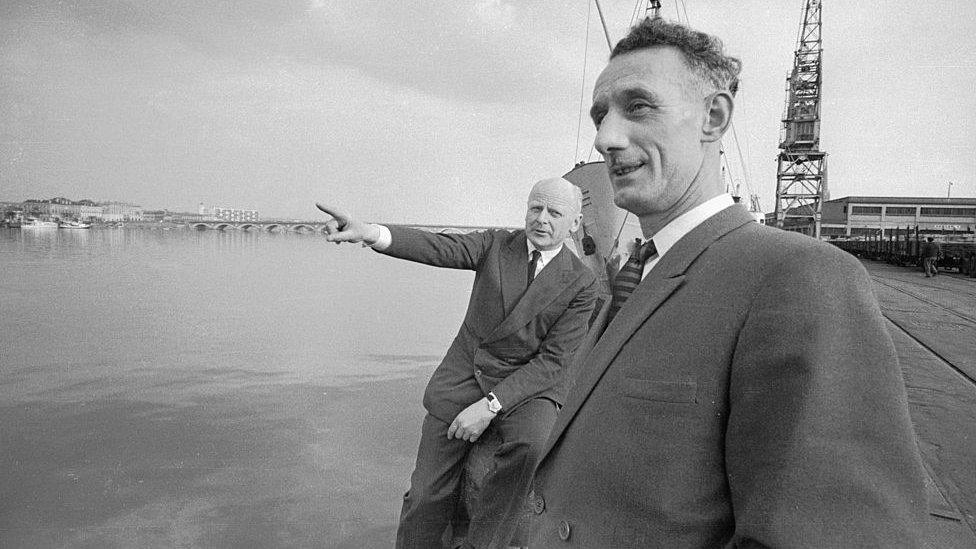
Maj Herbert "Blondie" Hasler and Cpl Bill Sparks (pictured in 1966) were the only two survivors from the mission

The Cockleshell Heroes
The Royal Marine commandos trained around Portsmouth for four months ahead of their secret mission in December 1942.
They set off from Portsmouth on Royal Navy submarine HMS Tuna and were only given the details of their highly dangerous mission once on board.
Their target was a fleet of about 25 ships that were shipping essential materials - such as oils and natural rubber - needed for the Nazi war effort.
On 7 December, 10 marines were launched near the mouth of Gironde river in five two-man canoes.
Just two crews made it the almost-100 miles to the port - canoeing solely by night and resting by day - to plant mines on the enemy ships. Five were badly damaged in the raid.
Only two men survived the mission - Major Herbert "Blondie" Hasler and Corporal Bill Sparks.

Follow BBC South on Facebook, external, Twitter, external, or Instagram, external. Send your story ideas to south.newsonline@bbc.co.uk, external.
Related topics
- Published13 December 2017
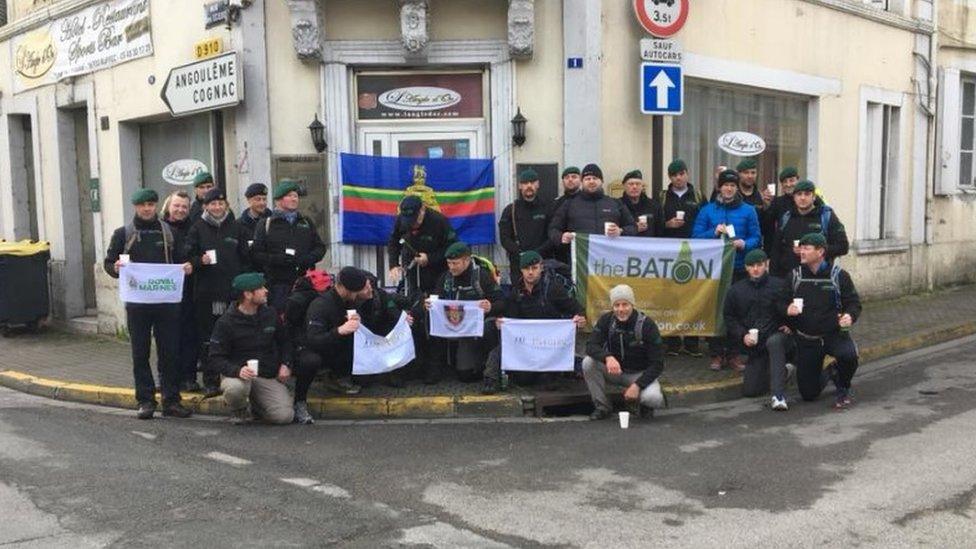
- Published10 December 2022
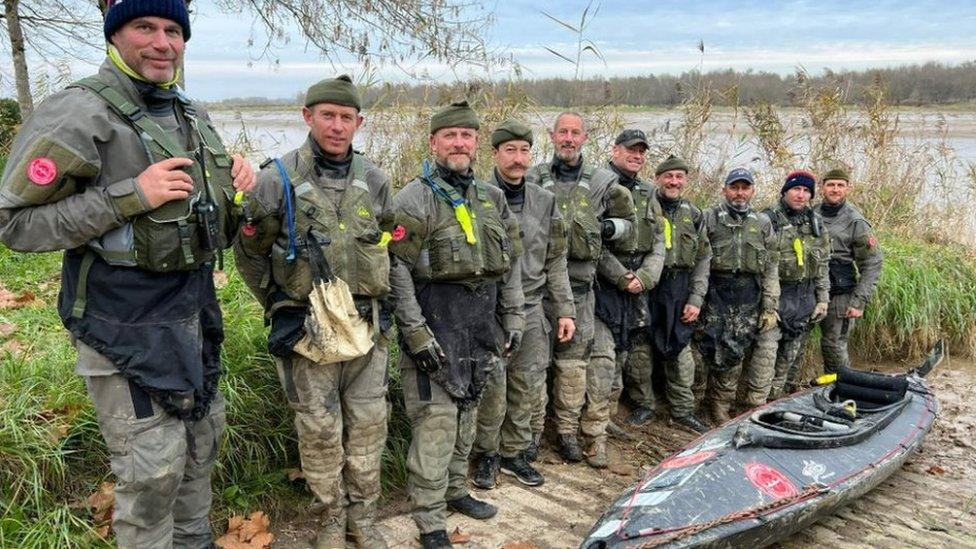
- Published10 December 2017
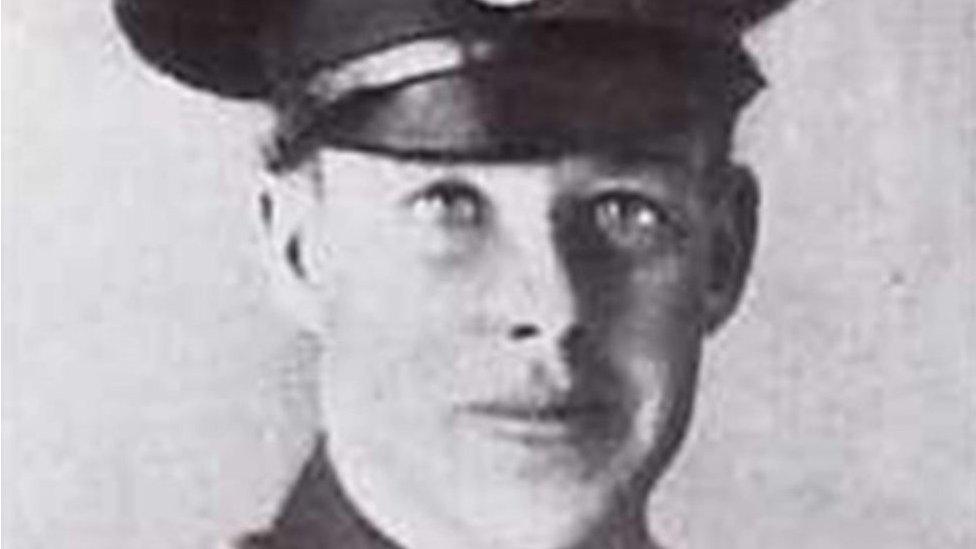
- Published31 March 2011